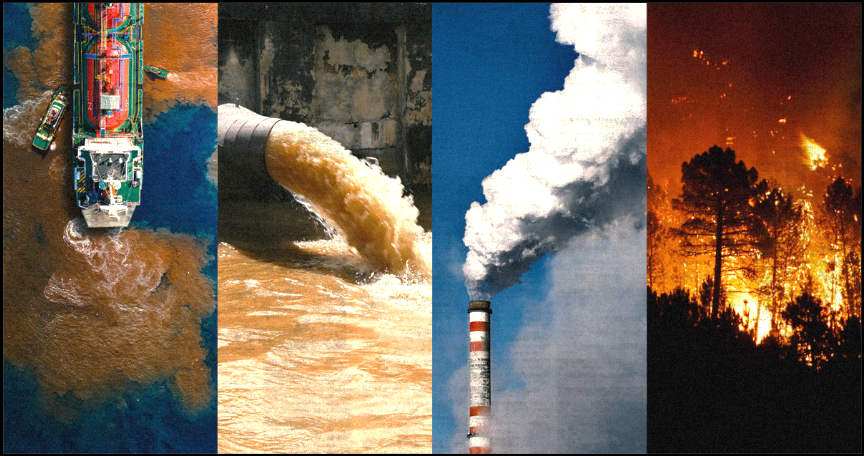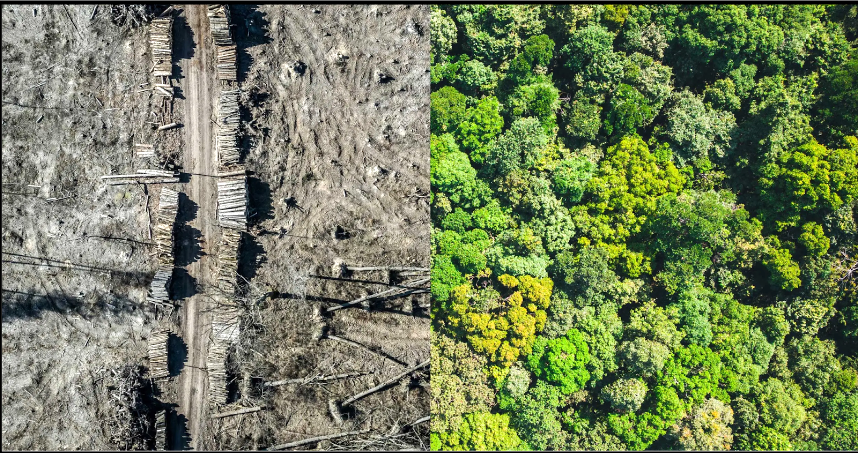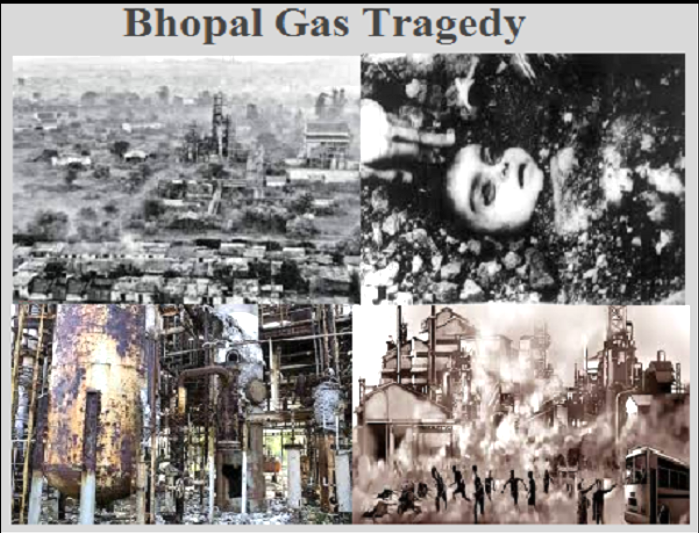
A Crime Against Nature
GS3- Environment
What is Ecocide?
Ecocide is a term used to describe the mass damage and destruction of the natural living world. It essentially means "killing one's home" or "killing the environment."
- Definition: Ecocide is a crime against the ecosystem. It's described as the extensive loss, damage, or destruction of ecosystems to the extent that the peaceful enjoyment of the inhabitants (referring to all living things excluding humans) has been or will be severely diminished.
- Stop Ecocide Foundation: This organisation defines ecocide as unlawful or wanton activities undertaken with the awareness that there is a strong possibility of severe and either widespread or long-term environmental damage as a result of such acts.
- Examples: Ecocide manifests in various ways, such as through port expansion projects endangering delicate marine ecosystems, deforestation, illegal mining for sand, and contaminating rivers with raw sewage.
- Historical Context: Genocide is a recognized international crime, and the concept of ecocide was first linked to environmental destruction in 1970. It referenced the use of the herbicide Agent Orange by the U.S. military during the Vietnam War.
In 1972, Swedish Prime Minister Olof Palme used the term "ecocide" in a speech to the United Nations, cautioning against unchecked industrialization's potential to irreparably harm the environment.
In 2010, British attorney Polly Higgins urged the International Criminal Court (ICC) of the United Nations to recognize ecocide as a global crime.
Rome Statute: Currently, the Rome Statute of the ICC only addresses four atrocities: genocide, war crimes, crimes against humanity, and crimes of aggression. Ecocide is the only piece of legislation that may hold a wrongdoer accountable for environmental damage.
Is Ecocide a Crime?
- Ecocide is a crime in 11 countries, while 27 additional countries are proposing legislation to criminalise environmental destruction.
- The European Parliament- It voted overwhelmingly this year to entrench ecocide in law.
- Ukraine- It punishes the wholesale destruction of flora and wildlife, the poisoning of air or water resources, and any other activity that may result in an environmental disaster.
- Georgia- It punishes and defines ecocide as pollution of the atmosphere, soil, and water resources, mass extinction of wildlife or flora, or any other act that may have resulted in an ecological calamity. It also punishes ecocide committed during armed conflict.
- The International Criminal Court (ICC) and Ukraine's public prosecutor are looking into Russia's participation in the collapse of the Nova Kakhovka dam, which triggered a catastrophic flood that drowned 40 areas and caused oil spills and hazardous leaks into the Black Sea.
The Relationship Between Ecocide and Climate Change

Ecocide is a prolonged action that harms the environment to a great extent, likewise, climate change due to anthropogenic activities also leads to the increased deterioration of the Earth with each passing year. Both, when induced anthropologically, can lead to catastrophic changes in the ecosystem. Here are a few key notable areas :
- Species Extinction: Ecocide, the mass damage and destruction of ecosystems, can lead to the extinction of more than one-third of the Earth's animal and plant species by 2050. This loss of biodiversity disrupts ecosystems and has far-reaching consequences.
- Temperature Rise: Practices associated with ecocide often release greenhouse gases, contributing to global temperature rise. This, in turn, leads to unprecedented heat waves worldwide, exacerbating climate-related challenges.
- Floods and Changing Patterns: Environmental degradation, including ecocide, can alter weather patterns and contribute to more frequent and severe natural disasters, such as floods. These changes result from disruptions in ecosystems and natural processes.
- Insufficient Global Action: Despite the urgency of addressing climate change, global climate action is considered insufficient. Ecocide is a contributing factor, as unchecked environmental destruction worsens climate-related problems.
- Anthropocene Era: The Anthropocene geological period, characterised by significant human impact on the environment, is marked by practices such as the unregulated use of fossil fuels, pollution of land and rivers with plastics and fertilisers, and the extinction of species—all linked to ecocide.
- Societal Norms Shift: The criminalization of ecocide can potentially lead to a shift in societal norms by highlighting the importance of environmental protection and accountability for environmental damage.
- Legal Frameworks: Modifying international legal frameworks, like the Rome Statute, may catalyse the development of national laws addressing ecocide and its consequences.
- Preventative Measures: Ecocide legislation has the potential to prevent destructive practices, such as deforestation in the Amazon, deep-sea trawling, and catastrophic events like the 1984 Bhopal Gas catastrophe.
- Accountability through Laws: Laws that hold individuals and businesses accountable by establishing restrictions and punishments for investing in environmentally harmful activities can help combat ecocide.
- International Petitions: Some small nation-states, such as Vanuatu and Barbuda, are petitioning the International Criminal Court (ICC) to consider environmental crimes as violations of international law, recognizing the need for international accountability.
- India's Legal Recognition: In India, certain court decisions have recognized rivers as legal beings with the right to maintain their spirit, identity, and integrity. This recognition affirms the concept of nature's legal personhood, emphasising the importance of preserving natural environments.
Why is it difficult to define Ecocide?
Ecocide is a complex issue with various arguments, including the need for a separate law, an ambiguous definition, and a development-versus-environment narrative. The ICC's power is limited to natural persons, making it unable to hold corporate entities criminally liable. Crimes are transnational, with corporations having private or state-owned corporations in other countries, making the definition of ecocide difficult. Examples include the Great Nicobar Project and the Great Nicobar Project.
What is India's stance on ecocide?
- The Supreme Court held in T.N. Godavarman Thirumulpad versus Union of India & Ors that "environmental justice could be achieved only if we shift away from the principle of anthropocentricity to ecocentricity."
- The Environmental (Protection) Act of 1986, the Wildlife (Protection) Act of 1972, and the Compensatory Afforestation Fund Act, of 2016 (CAMPA) are all part of India's environmental policy, as are separate measures to avoid air and water pollution.
- These disparate laws must be combined into a code, and institutions must be simplified, in order for debates such as ecocide and environmental rights to find "their proper way through legal channels."
- Expanding NGT’s jurisdiction- The National Green Tribunal, India's highest environmental regulatory body, lacks the power to hear cases involving the Wildlife (Protection) Act of 1972, the Indian Forest Act of 1927, and other state-enacted legislation.
- The recently enacted Forest Conservation (Amendment) Bill, 2023, and Biodiversity (Amendment) Bill, 2023, may weaken present legislative safeguards and result in the loss of 20%-25% of the country's forest area.
- A critical obstacle is addressing liability and compensation issues. Survivors of the Bhopal gas disaster are still battling for compensation.
Way Forward
Before enacting ecocide legislation on a global scale, India must first align its environmental laws with the concept of ecocide.
An ecocide law should be part of a larger process of transforming public consciousness, realising that we have a relationship with our environment and that our well-being is reliant on the well-being of the ecosystem.
There is a need to employ a variety of tools, both political and diplomatic, as well as legal, to achieve environmental preservation.
|
Yellow Vest Movement The Yellow Vest movement, also known as the mouvement de gilets jaunes, is a grassroots political movement in France, initiated in October 2018. |

